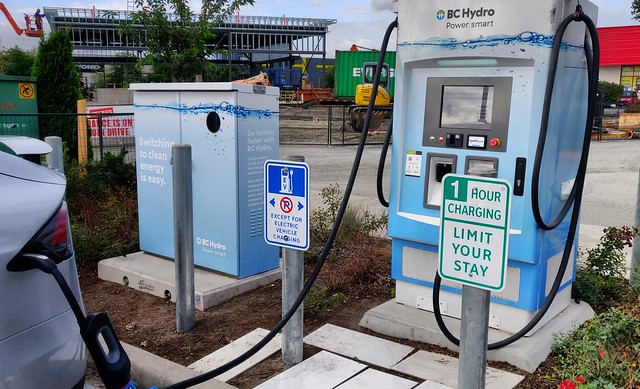General folks have many misconceptions about electric vehicles. For example, even in places where electricity costs are very high, the price of running an EV is substantially cheaper than gasoline vehicle ownership. Charging a 2019 pure EV on home current is like turning on 1.5 electric hot water heaters. (For electrical utilities it is a blessing having consumption at night with the batteries acting like a huge supply on smart grids.) Although it will take over nine hours to charge my Kona from empty, there are very few times when I'll have an empty battery. For most commuters, it'll take just a couple of hours to be completely charged up for the next day. This works out perfectly for those in single-family dwellings.
However, I live in a 150-unit strata building built in the 1980's. Some surrounding municipalities already mandate an electrical connection for each new-construction parking space. Retrofitting old condos for EV charging is an enormous headache with lots of assumptions and scenarios. However, should we not start preparing today, we may find our property less valuable as future buyers may demand EV-ready buildings.
I met with a preliminary group of folks interested in electric vehicle changing options for our strata. Strangely, the five guys all had names starting with the letter D. I am keen on preparing for both immediate and longer-term situations. Of course, my interest is somewhat selfish. I have already ordered an all-electric mini-SUV for delivery when we get back to Canada in the spring. Yet, regardless of how prepared or unprepared our buildings are, I am sure I'll be going ahead.

For next summer I can count on public fast DC chargers such as this one I photographed at the Canadian Superstore in Coquitlam. We shop here weekly and I will be able to charge from 10% to 80% in less than an hour while we're picking out our groceries items. There are also street 220v AC options in my city which will suffice for short top-ups.
